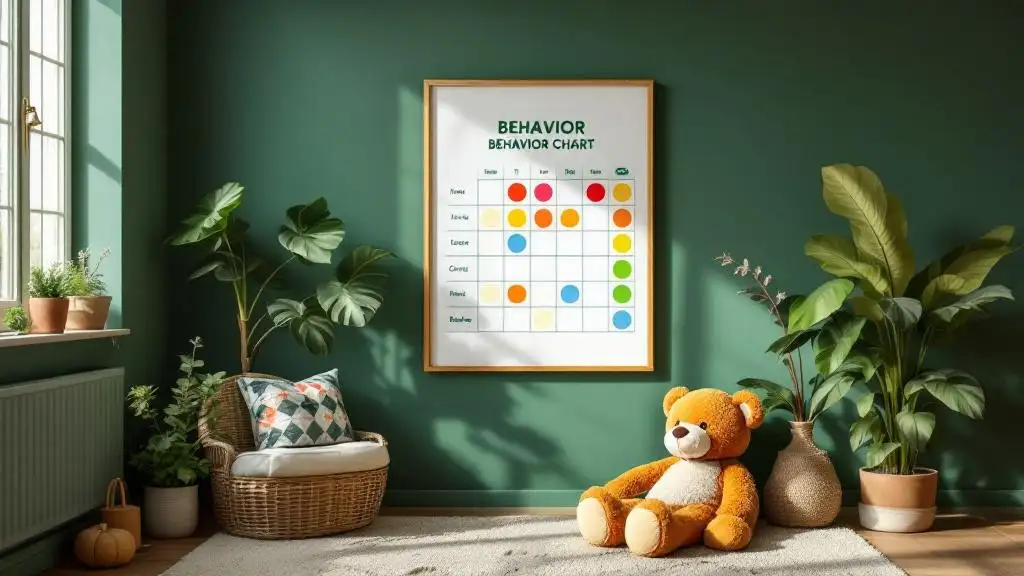Find Free RBT Training Near You
Unlock Free RBT Training Opportunities Nationwide

Introduction to Free RBT Training Resources
For individuals seeking to become Registered Behavior Technicians (RBTs), access to affordable and high-quality training is essential. Thankfully, numerous organizations now offer free, comprehensive RBT training programs that meet certification requirements. This article explores where to find these resources, what the prerequisites are, and how to get started on your pathway to certification without financial burden.
Understanding the RBT Certification Pathway
 Becoming a Registered Behavior Technician (RBT) involves a clear pathway that emphasizes training, eligibility, and assessment. The Autism Partnership Foundation offers a notable opportunity by providing a free 40-hour training course that aligns with the Behavior Analyst Certification Board (BACB) standards, specifically based on the 2nd edition task list. This training provides essential knowledge and skills needed to serve as an effective RBT.
Becoming a Registered Behavior Technician (RBT) involves a clear pathway that emphasizes training, eligibility, and assessment. The Autism Partnership Foundation offers a notable opportunity by providing a free 40-hour training course that aligns with the Behavior Analyst Certification Board (BACB) standards, specifically based on the 2nd edition task list. This training provides essential knowledge and skills needed to serve as an effective RBT.
Participants who complete this training receive a certificate, which is a vital step toward certification. These certificates are awarded to anyone interested, as the training is available continuously and free of charge, making it accessible for aspiring professionals whenever they choose to start.
To become an officially certified RBT, certain requirements must be met. The minimum eligibility criteria include being at least 18 years old, holding a high school diploma or equivalent, and passing a criminal background check. Certification also necessitates passing a competency assessment, which evaluates the skills learned during training.
The importance of proper training and thorough competency assessment cannot be overstated. They ensure that individuals are well-prepared to provide high-quality autism intervention services. The Autism Partnership Foundation not only offers this free training but also hosts conferences and discussions on ABA and autism, further enhancing its credibility and contribution to the field.
In summary, the pathway to RBT certification requires completing relevant training, satisfying educational and background prerequisites, and passing competency assessments. This structured process confirms that certified RBTs are equipped to deliver impactful services.
Can you become an RBT without certification?
Yes, certification is necessary to officially become an RBT. To qualify, individuals must complete the 40-hour training, be at least 18, hold a high school diploma or equivalent, and pass a background check.
What are the educational requirements to become an RBT?
A high school diploma or its equivalent is the minimum educational requirement. Formal college degrees are not required, but completing the 40-hour training and passing the competency assessment are essential steps.
Can I take the RBT exam without completing a traditional school program?
Yes. After fulfilling the training and assessment requirements, individuals can sit for the RBT exam without needing to attend a traditional educational institution.
| Requirement | Description | Additional Details |
|---|---|---|
| Training | Complete 40-hour course | Offered online for free by the Autism Partnership Foundation |
| Age | At least 18 years old | Mandatory age requirement |
| Education | High school diploma or equivalent | Not mandatory to pursue college degrees |
| Background Checks | Pass criminal background screening | Ensures safety and suitability |
| Competency Assessment | Pass skill demonstration | Validates practical skills |
This pathway highlights how accessible and structured the process is for becoming a certified RBT, especially with resources like free training options.
Cost and Accessibility of RBT Training
 Becoming a Registered Behavior Technician (RBT) involves certain costs, but there are also numerous accessible resources to help prospective candidates. Typically, the standard costs for RBT certification include an application fee of $50 and an exam fee of $45. When combined, these expenses usually range from $100 to $400. These fees are paid directly to the Behavior Analyst Certification Board (BACB) and are non-refundable.
Becoming a Registered Behavior Technician (RBT) involves certain costs, but there are also numerous accessible resources to help prospective candidates. Typically, the standard costs for RBT certification include an application fee of $50 and an exam fee of $45. When combined, these expenses usually range from $100 to $400. These fees are paid directly to the Behavior Analyst Certification Board (BACB) and are non-refundable.
However, a growing number of free online training programs are making it easier for individuals worldwide to qualify as RBTs. Notably, the Autism Partnership Foundation offers a comprehensive 40-hour RBT training that aligns with the BACB's 2nd edition task list. This training is entirely free and is available to anyone interested, regardless of location. Upon completing the course, participants receive a certificate, which is essential for certification eligibility.
Such online resources significantly increase training accessibility across the globe. Platforms like Alison also provide free courses related to autism and developmental support, helping individuals prepare for roles working with autistic populations. These freely available resources facilitate the entry of more professionals into the field, regardless of geographical or financial barriers.
Below is a summary table of costs and accessibility options:
| Cost Type | Typical Expenses | Notes |
|---|---|---|
| Certification Fees | $100 - $400 | Includes application and exam fees |
| Free Training Resources | Free | Autism Partnership Foundation, Alison, others |
| Accessibility | Global | Online courses, no physical presence required |
With these options, aspiring RBTs can choose the path that best fits their circumstances, ensuring broader access to autism intervention training worldwide.
Finding Local and Remote Training Opportunities
 If you are interested in becoming a Registered Behavior Technician (RBT), finding accessible training options is an important step. Many organizations and platforms offer free or low-cost training programs designed to meet the Behavior Analyst Certification Board (BACB) requirements.
If you are interested in becoming a Registered Behavior Technician (RBT), finding accessible training options is an important step. Many organizations and platforms offer free or low-cost training programs designed to meet the Behavior Analyst Certification Board (BACB) requirements.
One notable option is the Autism Partnership Foundation. They offer a free 40-hour RBT training based on the 2nd edition task list. This training covers necessary knowledge areas and meets BACB standards for certification. Participants who complete the course receive a certificate, which is a valuable credential in the autism intervention field.
To locate similar programs in your area, consider searching online for community centers, non-profit organizations, and virtual training platforms. Many of these sources provide free or affordable courses, along with supervised practical hours, which are essential for successful certification.
When evaluating training programs, look for these qualities:
- Alignment with BACB requirements
- Supervised practical components
- Experienced instructors with background in ABA
- Positive reviews or testimonials
For virtual training, ensure the program offers opportunities for supervised practical work, as hands-on experience is crucial. Some online courses incorporate live supervision, enabling you to apply learned skills actively.
Do keep in mind that many employers also cover the costs of RBT training. Some might even pay their employees during the training period, making it easier to start your career without financial burden. It's always worth checking with prospective employers to understand available benefits.
For more options and resources, search with queries like "local free RBT training programs near me" or explore online platforms offering certification courses to expand your options for becoming an RBT.
Additional Support and Resources in the Field of ABA and Autism
 The Autism Partnership Foundation offers valuable educational and professional development opportunities for individuals interested in Applied Behavior Analysis (ABA) and autism intervention. A notable resource is their free 40-hour Registered Behavior Technician (RBT) training. This training is based on the 2nd edition task list, ensuring that it aligns with the Behavior Analyst Certification Board (BACB) requirements for RBT eligibility.
The Autism Partnership Foundation offers valuable educational and professional development opportunities for individuals interested in Applied Behavior Analysis (ABA) and autism intervention. A notable resource is their free 40-hour Registered Behavior Technician (RBT) training. This training is based on the 2nd edition task list, ensuring that it aligns with the Behavior Analyst Certification Board (BACB) requirements for RBT eligibility.
Participants who complete this comprehensive training receive a certificate, which can help in advancing their careers in autism support services. Importantly, this training program is open to everyone and is available indefinitely, allowing individuals to access it whenever they are ready to learn.
Beyond training programs, the foundation actively hosts conferences and workshops focused on ABA techniques, autism research, and intervention strategies. These events provide ongoing education opportunities for professionals, parents, and advocates alike. Such conferences promote the sharing of the latest research developments and best practices in the field.
The Autism Partnership Foundation also contributes significantly to autism research and public advocacy. Their involvement enhances the credibility of their programs and helps shape policies and discussions surrounding autism intervention. Their efforts ensure that the community remains informed and that interventions are grounded in scientific evidence.
In summary, reputable organizations like the Autism Partnership Foundation serve as vital hubs for education, research, and advocacy in ABA and autism. They offer free training, host important conferences, and provide continuous learning opportunities, supporting both professionals and families affected by autism.
Starting Your Journey Towards RBT Certification
With accessible online platforms like the Autism Partnership Foundation offering free, comprehensive training, aspiring behavioral technicians can now embark on their certification journey without significant financial barriers. Combining online coursework with supervised practical experience and staying informed about local opportunities and ongoing professional development ensures a successful and rewarding career in autism intervention and behavioral therapy.
.svg)














